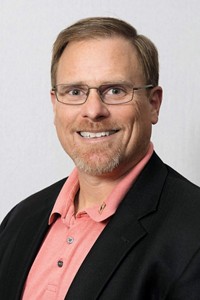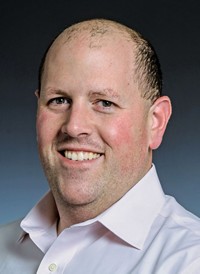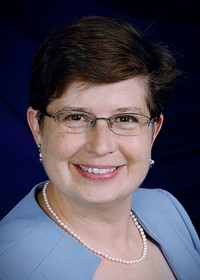Advertisement
Grab your lab coat. Let's get started
Welcome!
Welcome!
Create an account below to get 6 C&EN articles per month, receive newsletters and more - all free.
It seems this is your first time logging in online. Please enter the following information to continue.
As an ACS member you automatically get access to this site. All we need is few more details to create your reading experience.
Not you? Sign in with a different account.
Not you? Sign in with a different account.
ERROR 1
ERROR 1
ERROR 2
ERROR 2
ERROR 2
ERROR 2
ERROR 2
Password and Confirm password must match.
If you have an ACS member number, please enter it here so we can link this account to your membership. (optional)
ERROR 2
ACS values your privacy. By submitting your information, you are gaining access to C&EN and subscribing to our weekly newsletter. We use the information you provide to make your reading experience better, and we will never sell your data to third party members.
Policy
ACS Program That Bridges Gulf Between Chemists And Policymakers Celebrates 40-Year Anniversary
by Susan B. Butts, Chair, Committee on Chemistry and Public Affairs
July 21, 2014
| A version of this story appeared in
Volume 92, Issue 29
In 1974, the American Chemical Society embarked on a bold experiment to provide technical expertise to the public policy arena and to educate chemists on the inner workings of policy and politics. Seeking to address the widely recognized disconnect between scientists and policymakers, the ACS Board of Directors established the groundbreaking Congressional Fellowship Program to place Ph.D.-level scientists and engineers directly on Capitol Hill. Since then, more than 60 ACS members have served in Congress as fellows. The program has been replicated by other scientific organizations, and today roughly 35 societies collaborate to appoint more than 40 congressional fellows to Capitol Hill each year.
The need for the program has grown considerably over the years. Science and technology are increasingly endemic in our daily lives, and science plays a larger role in a wider range of policy issues faced by lawmakers. Science literacy is no longer a pursuit of the specialized few but an essential requirement of our body politic. Congress needs scientists working with it.
Likewise, scientists and engineers cannot afford to distance themselves from the nitty-gritty of policy-making. Information is not enough—a deep understanding of the internal system is required to have an impact. Like any chemical reaction, the ability to achieve the correct product (policy) is as much about following the right process as having the right reactants (information).
ACS Congressional Fellows spend a year working directly for an individual member of Congress or on a congressional committee. They couple their own technical expertise and scientific acumen with the political know-how of the permanent congressional staff to deal with the policy issues of the day.
Congressional Fellows also act as a conduit to the broader scientific community, bringing their own network of collaborators to bear or acting as a liaison to scientists and engineers pleading their case on specific topics. Finally—and most important—they build bridges across the cultural divide between science and policy on a person-to-person, issue-by-issue basis, inserting scientific rigor and thought into fast-moving, and often nonlinear, policy decision processes.
In 1986, to further broaden the opportunities for chemists to gain experience and insights about the policy arena, ACS created the Science Policy Fellowship Program. ACS Science Policy Fellows join the ACS Office of Public Affairs (OPA) for one to two years. There, fellows work side by side with experienced OPA staff to provide information to policymakers on the role of science in public policy, to advance specific recommendations on issues affecting the chemical enterprise, and to inform ACS members and involve them in the policy process.
ACS Science Policy Fellows cover a range of issues, including federal funding for scientific research; science, technology, engineering, and math education; green chemistry; environmental policy; and regulatory policy. Although many other scientific societies support congressional fellowships, ACS is one of only a handful to offer the broad sampling of experiences the ACS Science Policy Fellowship Program affords.
The Congressional and the Science Policy Fellowships, which together form the ACS Public Policy Fellowship Program, have successfully bridged the divide between science and policy for 40 years.
It is difficult to overestimate the impact that the fellows have had on the policy process, or the impact the experience has had on them. For 40 years, ACS Public Policy Fellows have worked in Washington to influence policymakers, educate about the importance of chemistry, and further the scientific enterprise. Fellows emerge from this crucible with a much deeper understanding of the policy community and the processes that shape our national direction, ready to share their knowledge with their fellow scientists and engineers.
After their year or two in Washington, ACS Public Policy Fellows take a variety of paths. Some return to positions in academia or industry, armed with their experience and ready to educate others on the particulars of policy so that we scientists can have a stronger voice on issues that impact our community and nation. Others stay in the policy world, working on Capitol Hill or in the executive branch.
Past ACS Public Policy Fellows have become senior staff in major congressional offices and committees, served in key roles at the White House, and joined federal agencies at high levels. Still others take on technical challenges with direct policy impacts by working with nongovernmental organizations, federally funded research and development centers, technical agencies, or science-based advocacy groups.
In celebration of the remarkable achievements of the ACS Public Policy Fellowship Program over four decades, a special symposium will be held at the ACS national meeting in San Francisco on Monday, Aug. 11, from 9 AM to noon in the Hilton San Francisco Union Square Hotel (in room Union Square 17/18). Fellows from each decade of the past 40 years will recount key aspects of their fellowships, discuss the importance of the intersection between science and policy, and talk about how best to influence key policy and policymakers on critical issues. I invite all ACS members interested in understanding more about the policy world to join us.
More information about the fellowships, including how to apply, can be found at www.acs.org/policyfellow.
Views expressed on this page are those of the author and not necessarily those of ACS.






Join the conversation
Contact the reporter
Submit a Letter to the Editor for publication
Engage with us on Twitter